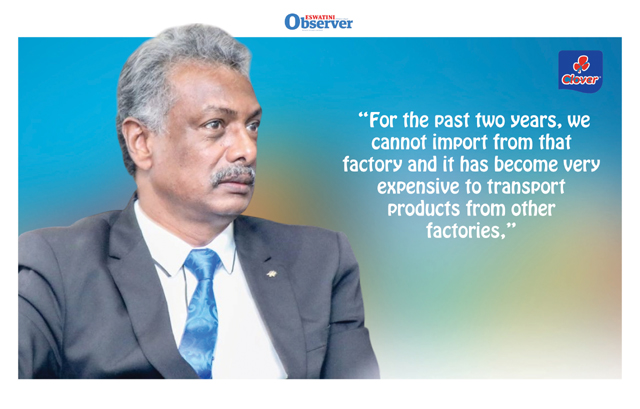By Nokunceda Magagula | 2025-04-03

Clover Swaziland has called upon minister of finance to reconsider the current taxation structure on dairy products.
This is due to that the company which is a prominent dairy producer had significant challenges in transporting its daily products from its factory located in Kwa- Zulu-Natal (KZN) due to ongoing impacts of foot and mouth disease.
Also Read: ESWATINIMED SAGA: BE VICE PRESIDENT STEPS DOWN
With being unable to operate effectively for the past two years, this led to a severe financial burden on its operations and affected the affordability of dairy products for consumers.
Clover Swaziland Managing Director, Ronnie Egambaram pointed out that Clover was subjected to a levy on dairy products and a VAT on cheese products, which further complicated the financial situation for both the company and consumers.
Making his submission during the Business to Government (B2G) engagement, he said considering the health of the nation, government should encourage people to eat dairy products and not double tax them.
“For the past two years, we cannot import from that factory and it has become very expensive to transport products from other factories,” Egambaram stated.
The foot and mouth disease, which has been present in the region for almost three years, has led to strict movement controls and trade restrictions aimed at preventing the spread of the virus among livestock.
This situation had put considerable pressure on dairy producers like Clover, who relied on the movement of goods to maintain their business operations and ensure a steady supply of products to consumers.
The ongoing foot and mouth disease crisis not only affects Clover but also posed a broader threat to the agricultural sector in the region.
Farmers and producers face disruptions that could have long-term effects on food security and the agricultural economy.
In response, Prime Minister Russell Dlamini emphasised that it was important for the country to be kept foot and mouth free.
He pointed out that it was extremely difficult and expensive to eradicate it.
“That is the first principle that we must observe, which is keeping the country free of this disease,” he said.
Dlamini said there were ways in which dairy industry could keep on thriving in the country, which included importing from other countries using artificial insemination.
minister of Agriculture, Mandla Tshawuka echoed Dlamini’s sentiments, emphasising that it was important to keep the disease out of the country.
He noted that the process of issuing licences for importing dairy products had been overregulated, however now the permits only came from Eswatini Dairy Board.
The minister said this was done to create ease to farmers.
share story
Post Your Comments Below
All material © Swazi Observer. Material may not be published or reproduced in any form without prior written permission.
Design by Real Image Internet